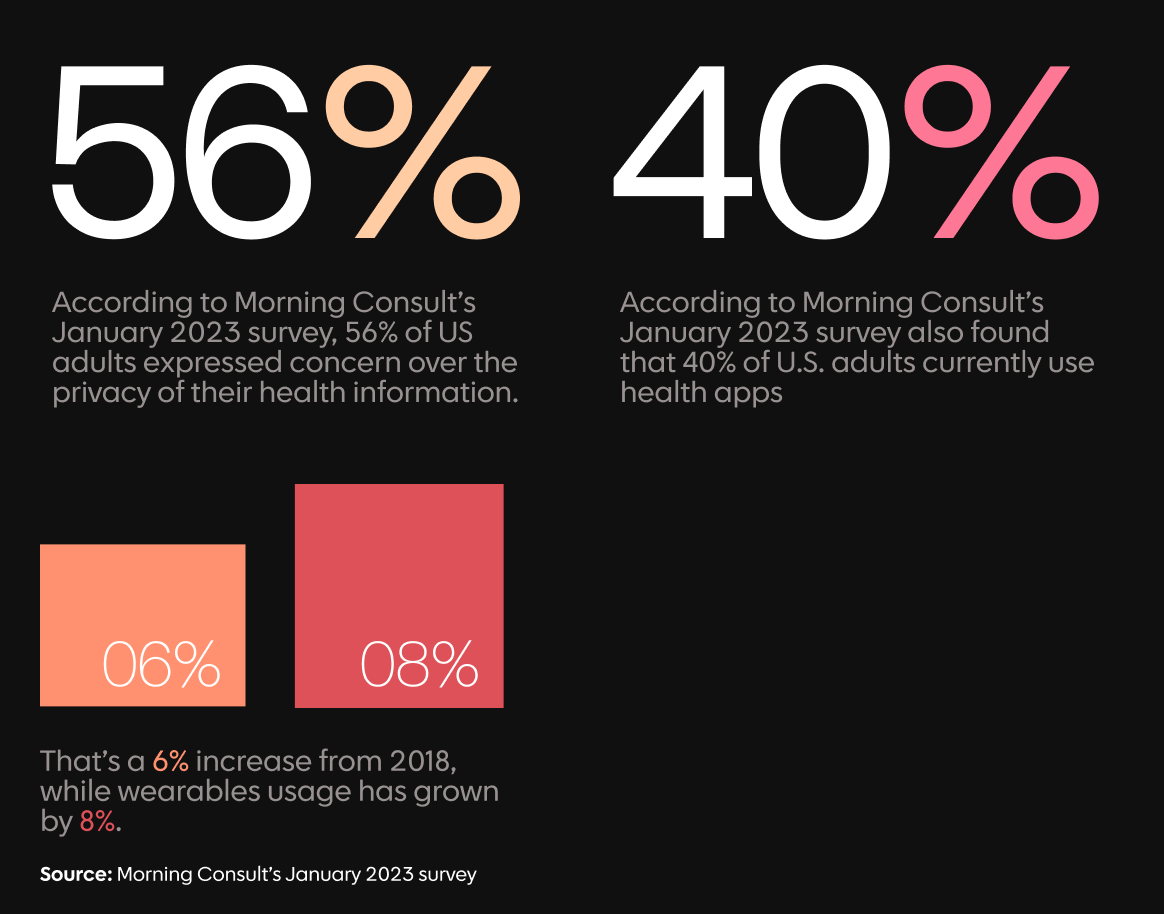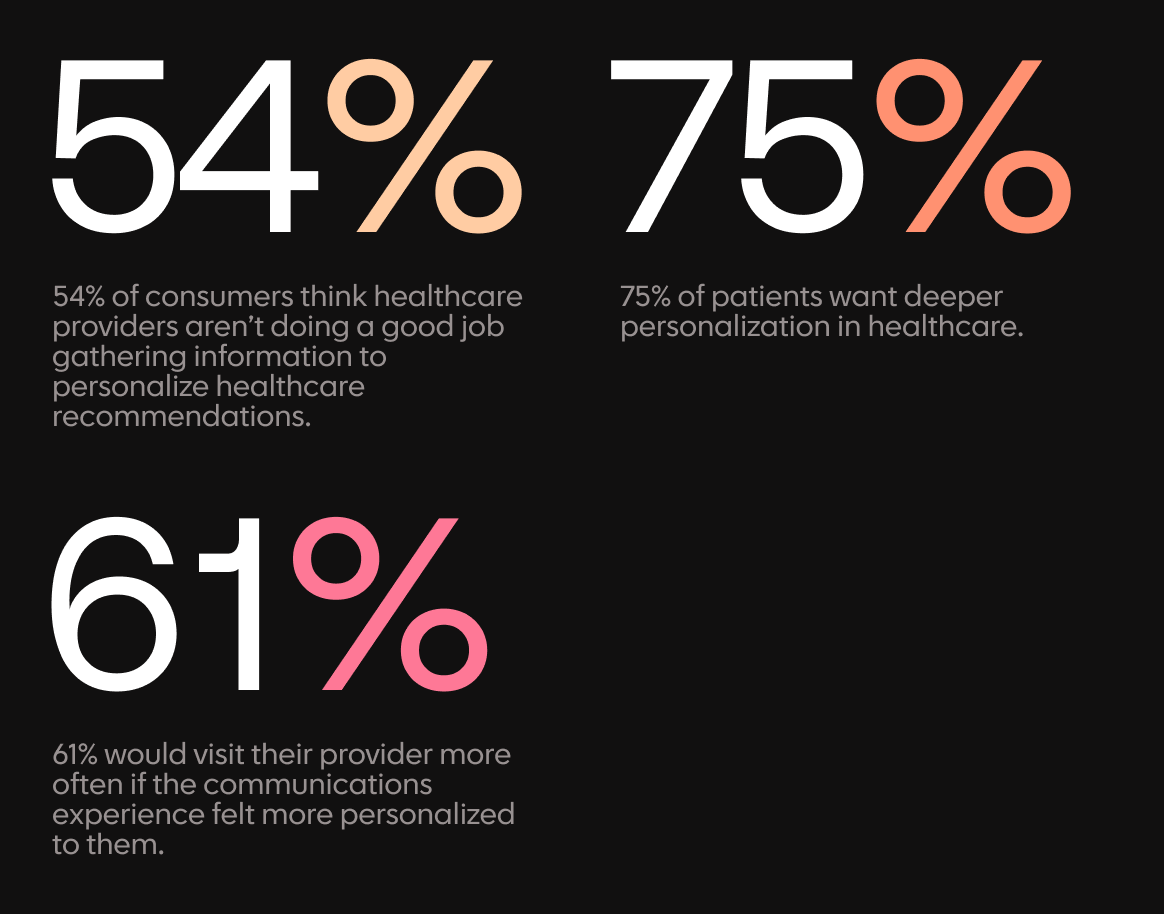Getting Personal
Maximizing Engagement in an Evolving Health & Wellness Landscape
 Within the constantly evolving health and wellness industry, loyalty programs have emerged as indispensable tools for brands aiming to differentiate themselves and cultivate enduring relationships with their customers. This white paper explores the makeover of these programs from simple incentives to creators of transformative experiences, emphasizing the emotional connection nurtured through custom-made offerings. As the sector experiences a surge in growth driven by holistic well-being and technological innovations, loyalty strategy plays a crucial role in amplifying customer engagement and retention rates. Brands must also address challenges such as cybersecurity threats and shifting consumer preferences to fully leverage the potential of loyalty programs and navigate the competitive landscape effectively.
Within the constantly evolving health and wellness industry, loyalty programs have emerged as indispensable tools for brands aiming to differentiate themselves and cultivate enduring relationships with their customers. This white paper explores the makeover of these programs from simple incentives to creators of transformative experiences, emphasizing the emotional connection nurtured through custom-made offerings. As the sector experiences a surge in growth driven by holistic well-being and technological innovations, loyalty strategy plays a crucial role in amplifying customer engagement and retention rates. Brands must also address challenges such as cybersecurity threats and shifting consumer preferences to fully leverage the potential of loyalty programs and navigate the competitive landscape effectively.
This white paper also highlights the importance of transactional communications to establish genuine connections with consumers. This entails understanding individual needs and preferences and delivering experiences that resonate on a personal level. As industry leaders like Apple spearhead innovations in fitness technology, loyalty programs have the opportunity to deliver highly tailored experiences aligned with individual health journeys. Success in this endeavor hinges on embracing technological advancements and ultimately inspiring customers to become passionate advocates for the brand.
What is Next for Loyalty?
In the post-pandemic world marked by economic uncertainty, loyalty program trends are evolving rapidly, prompting businesses to consider how to both keep pace and pioneer next-generation initiatives. Next-generation loyalty programs transcend traditional points systems, leveraging advanced technology to deliver bespoke offers and capitalize on consumer preferences reshaped by innovations like wearable devices and adapted health platforms. These programs prioritize customer engagement through user-generated content, incentivizing reviews, and referrals to foster trust and enhance social authority.

Tech Transformation
Fitness technology experienced a significant surge in 2020, with its global market currently valued at $63.8 billion and continuing to expand rapidly. This sector encompasses various wearable devices, trackers, innovative equipment, and digital platforms, all aimed at enhancing people's engagement in fitness and physical activities by offering convenience, enjoyment, social interaction, track-ability, and affordability.
Key players such as Fitbit have spearheaded efforts to revolutionize how individuals perceive, monitor, and prioritize their well-being. They have achieved this by centralizing users' health data in secure platforms and introducing innovative customization techniques. Previously confined to medical settings, health information is now instantly accessible through intuitive apps and interfaces, enabling tracking of various metrics such as steps, heart strength, sleep patterns, and respiratory activity.
Connected devices are increasingly integral to consumers' well-being, facilitating adherence to personal treatment plans, adoption of healthy behaviors at home, and secure sharing of vital health information. This real-time information empowers care teams to remotely monitor progress and intervene as needed while also enabling users to share their achievements with friends and family across platforms. As wellness companies navigate this landscape, embracing and integrating these technological advancements into loyalty programs becomes imperative for fostering greater customer involvement, improving outcomes, and, ultimately, promoting longer, healthier lives.
Modern Challenges
In today’s society, the culture of instant gratification permeates every aspect of life. From online shopping to immediate access to information via smartphones, technological advancements have shaped consumer expectations, particularly in the realm of healthcare services. The demand for custom, on-demand solutions aligned with fast-paced lifestyles has prompted a shift towards virtual fitness classes and digital health platforms. However, alongside these changes comes the critical challenge of cybersecurity. The rapid transition to online platforms during the pandemic exposed vulnerabilities, highlighting the need for robust security measures to safeguard sensitive patient data from cyber threats.
 Consumers are increasingly wary of data privacy concerns, especially as trusted companies engage in data collection and sharing practices. While initiatives like complimentary fitness wearable devices are initially appealing, the fine print often reveals the extent of data collection and potential sharing. This growing awareness underscores the importance of transparency and ethical handling of personal data to maintain trust and loyalty. Despite these challenges, the adoption of health apps and wearables continues to rise, reflecting a broader acceptance of technology in managing individual well-being.
Consumers are increasingly wary of data privacy concerns, especially as trusted companies engage in data collection and sharing practices. While initiatives like complimentary fitness wearable devices are initially appealing, the fine print often reveals the extent of data collection and potential sharing. This growing awareness underscores the importance of transparency and ethical handling of personal data to maintain trust and loyalty. Despite these challenges, the adoption of health apps and wearables continues to rise, reflecting a broader acceptance of technology in managing individual well-being.
With the influx of data, companies face the risk of analysis paralysis, hindering the ability to effectively utilize information for refining business models and enhancing customer experiences. To harness the transformative power of this data, a proactive approach to continuous improvement is essential, ensuring that loyalty programs evolve in tandem with shifting expectations and behaviors. Ultimately, embracing technological innovations is imperative for health and wellness brands to not only meet but exceed customer expectations in an increasingly digital landscape.
Content is King – Still
Consumers are increasingly seeking authenticity and reliability in their purchasing decisions, turning to User Generated Content (UGC) as a trusted source of information. With 55% of customers trusting UGC more than traditional marketing messages, leveraging user-generated content can significantly enhance brand credibility and social proof. Brands can incentivize members to create content by offering loyalty points for actions like following or sharing the brand online, fostering a mutually beneficial relationship where input is valued and acknowledged.
Rewarding people for leaving reviews not only builds trust and emotional connections but also facilitates quick purchasing decisions for new customers. Brands like Better Way Health have successfully implemented this strategy, offering 200 loyalty points for every product review and prominently displaying these reviews on their product pages. Responding to each review further reinforces customer appreciation and encourages continued loyalty.
In the health and wellness industry, word-of-mouth marketing is particularly influential. Loyalty programs that nurture advocacy through referral incentives provide people with tangible benefits for sharing their positive experiences with others. Cultivating advocacy through UGC and referral programs not only strengthens brand trust but also serves as a cost-effective acquisition strategy, nurturing a community of loyal and engaged customers.
The Growing Personality Crisis
Health and wellness loyalty programs have traditionally centered around transactional offers, yet research indicates that customers prioritize feeling appreciated and understood over receiving special discounts. Personalization emerges as a critical factor in fostering loyalty, with a majority of consumers expressing a willingness to spend more on brands that offer custom-made experiences. In an increasingly virtual landscape, brands must adopt a customer-centric approach to meet individual needs at every touchpoint.
 As the health and wellness industry transitions to virtual experiences, the challenge lies in maintaining a sense of deep connection in online interactions. Customization becomes crucial in bridging this gap, leveraging data from wearable technology to tailor programs and experiences to each user's preferences and interests. Companies like Fitbit and Orangetheory Fitness exemplify how personalized insights and experiences drive engagement and loyalty, ultimately resulting in significant business growth and customer satisfaction.
As the health and wellness industry transitions to virtual experiences, the challenge lies in maintaining a sense of deep connection in online interactions. Customization becomes crucial in bridging this gap, leveraging data from wearable technology to tailor programs and experiences to each user's preferences and interests. Companies like Fitbit and Orangetheory Fitness exemplify how personalized insights and experiences drive engagement and loyalty, ultimately resulting in significant business growth and customer satisfaction.
Fitbit, for example, invites users to log not just workouts but hydration, food, and more—and then displays the info in a streamlined dashboard. After a workout, a customer may receive actionable tips that are tailored to their unique experience. Messages may include educational insights like how to assess their cardio fitness score, which estimates how well their body uses oxygen during intense exercise or suggestions for guided breathing to help users relax.
Orangetheory Fitness offers an interesting case study on using member data to create one-of-a-kind individual experiences for their members. In 2019, they ran a campaign that sent customized highlight reels to customers using data-driven videos. These videos celebrated members’ work in 2018 and gave them something exciting to use as a benchmark for their fitness goals in the year ahead. Taking it a step further, Orangetheory tailored the music in the video based on the customer’s own workout heartbeat!
Made-to-order video content emerges as a powerful tool for delivering complex health information in an accessible and engaging manner. By simplifying data and providing clear guidance, brands can effectively communicate with their audience and drive emotional engagement. Promoting a sense of community within loyalty programs further enhances customer engagement and loyalty, as customers seek opportunities to interact with peers, learn from each other, and contribute to a shared cause or passion. Ultimately, brands that prioritize personalization and community-building in their loyalty programs are well-positioned to cultivate lasting customer relationships and drive business success.
To view the full list of references, Click Here.


